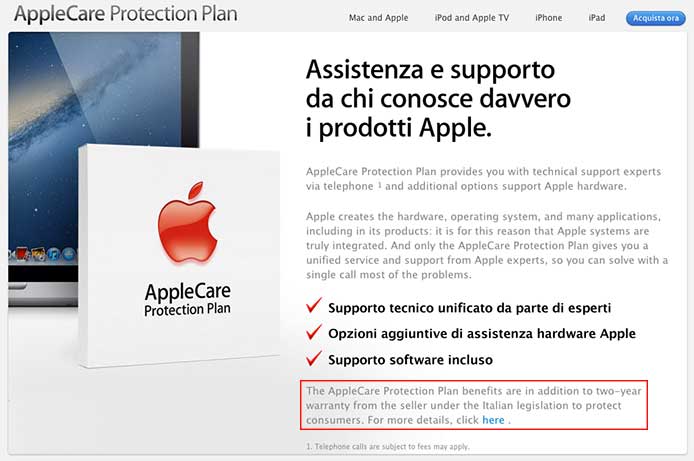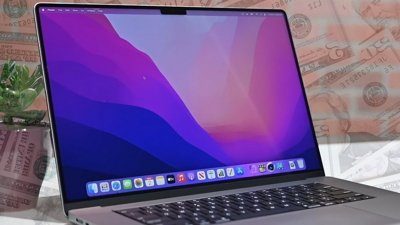Italy's Antitrust and Competition Authority on Friday said it is investigating whether Apple, Google, Amazon and Gameloft mislead the public into spending money on so-called "freemium" apps that offer in-app purchases.
The Italian regulator is attempting to determine whether the companies' respective app stores and freemium apps offer sufficient information about in-app purchases, reports The Wall Street Journal. Also under investigation are sales practices that seemingly trick users into paying for in-game content.
"Consumers could be led to think, contrary to reality, that a game is completely free and therefore they don't know ahead of time the game's true cost," the regulatory body said. "It appears also that there is a lack of information regarding how to exclude or limit the possibility of making a purchase inside the app."
As noted by the publication, the Antitrust and Competition Authority's investigation comes after the European Union asked companies to tread lightly with the freemium app model. The EU said consumers may be confused by the idea of downloading an app for free, then buying content after the fact that will be charged to their credit cards.
The EU also said it was working with Italian regulatory bodies over the issue and will continue to push for reform.
Apple has been the target of multiple investigations from the Italian Antitrust Authority, including a $1.2 million fine in 2011 for unfair commercial practices associated with standard product warranties. The regulator added another $264,000 for the same warranty issue a year later despite modifying AppleCare policies.
 AppleInsider Staff
AppleInsider Staff








 Andrew Orr
Andrew Orr
 Christine McKee
Christine McKee
 Sponsored Content
Sponsored Content
 Wesley Hilliard
Wesley Hilliard


 Amber Neely
Amber Neely









34 Comments
Right under the title of the app it says, In App Purchase. Scroll down a little further and it show what they are. But if users choose not to read, I guess that is Apple fault.
This is just dumb.
I'm not a big fan of the freemium model, I'd rather pay for a game outright. But having said that, nobody has ever forced me to play or download any freemium game. I have a little village in Clash of Clans that I check in on sometimes. Nobody has ever forced me to spend a dime on that game.
If other people wish to spend their own money on any freemium game, then that is their choice. Freemium games are the apps that bring in the most money on the appstore, so it's not surprising that companies do release freemium games, and we won't be seeing any less in the future.
Who are these weak and disgusting people that would blame Apple or anybody else for their own decisions? Are they mentally handicapped? Do they have no self control? No matter what their defect is, it certainly doesn't have anything to do with Apple.
Isn't it great that the people who live in Europe have a bunch of useless bureaucrats in Brussels looking out for them? I'm not sure if this rule is still in effect, but they're the same geniuses who had a rule stating that all bananas must be "free of abnormal curvature" and at least 14 cm in length.
And believe me, I'm not just criticizing Europe here, because here in the US there are more and more politicians that wish to emulate their lame European counterparts, and turn everything into a nanny state.
Can you say "Shakedown" !!!
This is once again truly ridiculous. I'm getting really fed up with politicians who believe everything needs to be regulated at government/EU level.
It was always possible to look up an app's in-app purchases. Additionally to seeing what is being sold within the app, there is now a marker/warning underneath every app title offering this. I really don't see how this is confusing to people, simply bloody read before clicking download. Even if one didn't care before, one is clearly warned, when an app prompts you to pay for something. I'm not sure what seems so misleading about "give me 2.99 for five more lives".
Secondly, this whole Freemium model is kind of what consumers wanted, it is what makes the most money to some devs and hence they're running with it. No one offered this just for the kicks. People voted with their wallets. So quite soon after the race to the bottom on the App Store defined most apps shouldn't cost more than 99 cents, people started expecting everything for "free". This is the real problem here, this is why most big name games are Freemium, rather than paid.
I don't like freemium games either, in fact I do not spend a dime one them. I'd love to spend 5-10 bucks for some nice games and be done with it and yet they're freemium. That's because I'm old-school, most people don't seem ready to buy good apps anymore, they want to get them for free. This is sad really, because as long as this model keeps on making more money than the classic "purchase a license" way, people won't even experience what good games used to be like, because all they get is grinds designed around paywalls and artificial time gates designed to frustrate you.
Well, either way. Rather than demonising developers' ways of making money off apps, the EU should perhaps look into starting some Europe wide campaigns about what software really is, what it takes and how much it costs to develop and market it. People need to understand that while they can't "touch" an app it still has a lot of value and how ridiculous it is being ready to get a coffee for 5 bucks, while not spending 2 bucks on an app they might use every day. It still amazes me every day, when I see that people simply want the best apps for free. Not only that, but they're also fantastically good at writing critical reviews of those apps, which they got for free. It really puzzles me what people must think. Where is the developer making money, how is he supporting himself giving everything away?
So, EU, instead of subsidising dying car brands, dying industries, outdated form of energy and big corporations to keep on offering their precarious working conditions rather than moving further east, how about you start doing some good and run some campaigns on how software has an actual value.
I think an investigation of this type is fair. If Apple is doing enough they will be found innocent. Let's hope this seriously tarnishes freemium apps, cause the majority of them are a con.